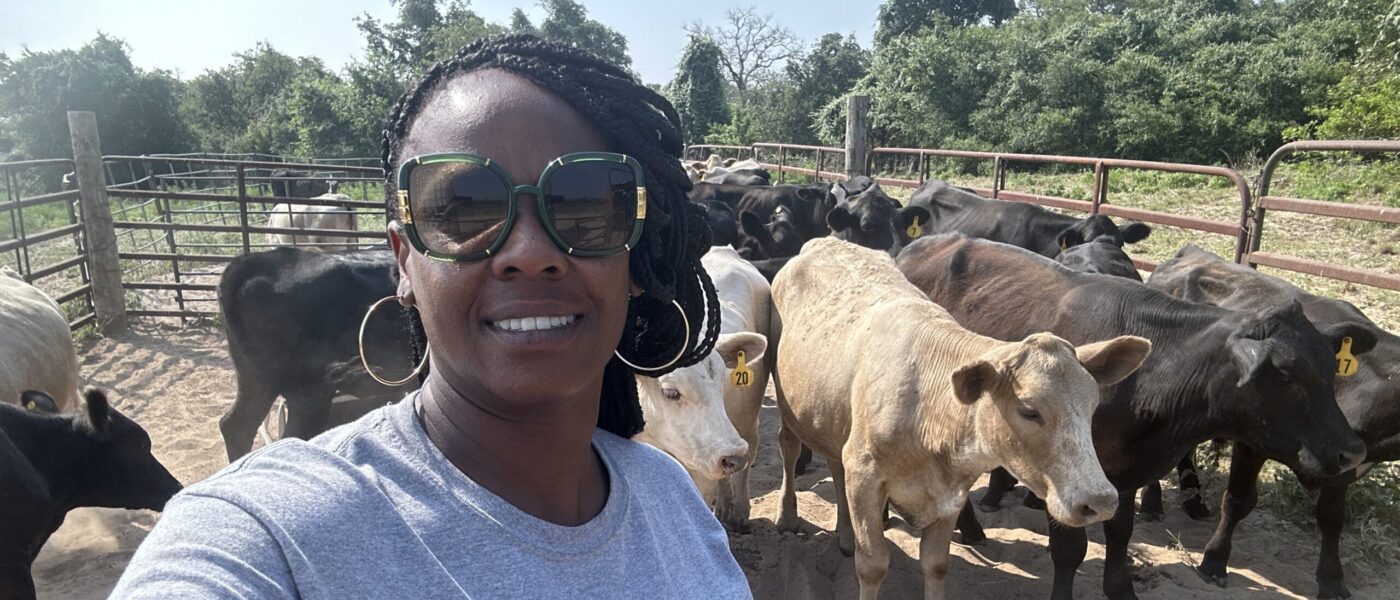On a recent Saturday, rancher Deydra Steans ran her hands over the painted planks of a 19th century home once owned by the Johnson and McKean families in Luling, Texas. To anyone else, the interior walls of the old house may have looked ordinary, or even attractive, but to Steans, they carried the weight of history. As she roamed from room to room, apart from revelers celebrating a wedding in another part of the house, she thought about her great-great-grandfather, Littleton Harris, who had been brought from Alabama to the Johnson plantation as a slave. She thought about how the McKean family, which bought the property from the Johnsons in 1870, later asked Littleton’s grandson, Sam Harris, to run their properties. And she thought about her grandmother, Lillie Ball Harris, who worked as a domestic servant in this very house for the Allen family, the present owners, who purchased the property from the McKeans in the age of racial segregation. Being in the house, Steans recalled, “was heavy work, a heavy realization. I’m just glad that I got to do that and have that experience, and learn so much about my family and my work.”
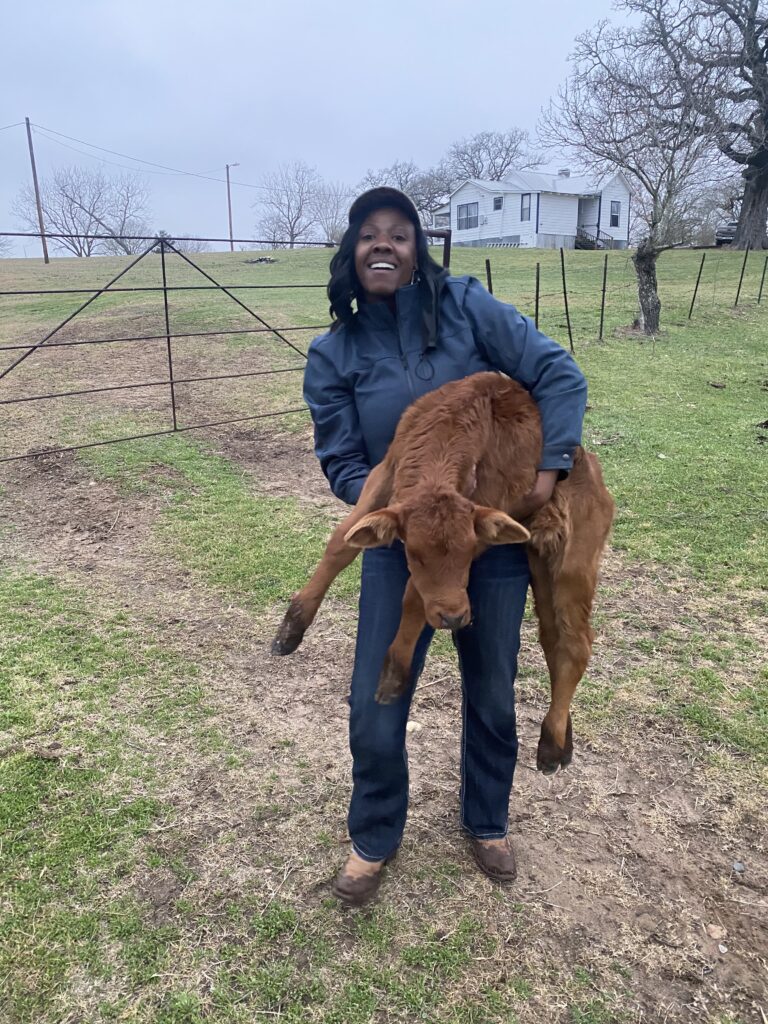
Photo courtesy of Deydra Steans
No one who knows Deydra Steans would be surprised to find her standing in the “big house” from which the Johnson enslavers once supervised their labor force. Steans is not only a fourth-generation rancher who owns and works land where her family once toiled as slaves and, later, sharecroppers, but she is also the founder of Black Gold Resourcing—which provides outreach and technical assistance to marginalized Black, Indigenous, and People of Color (BIPOC) farmers in South Central Texas—and a farm advocate with a talent for historical detective work.
What sets Steans apart is her unwavering commitment to reestablishing her community’s connection to the land in the face of structural racism, historical discrimination and ongoing targeted land theft. She brings a range of skills—derived from years of ranching experience, deep historical research, and teaching the economic benefits of regenerative agriculture—to the work of keeping Black farmers on their Texas land. On social media, she often uses the hashtag #wearestillhere.
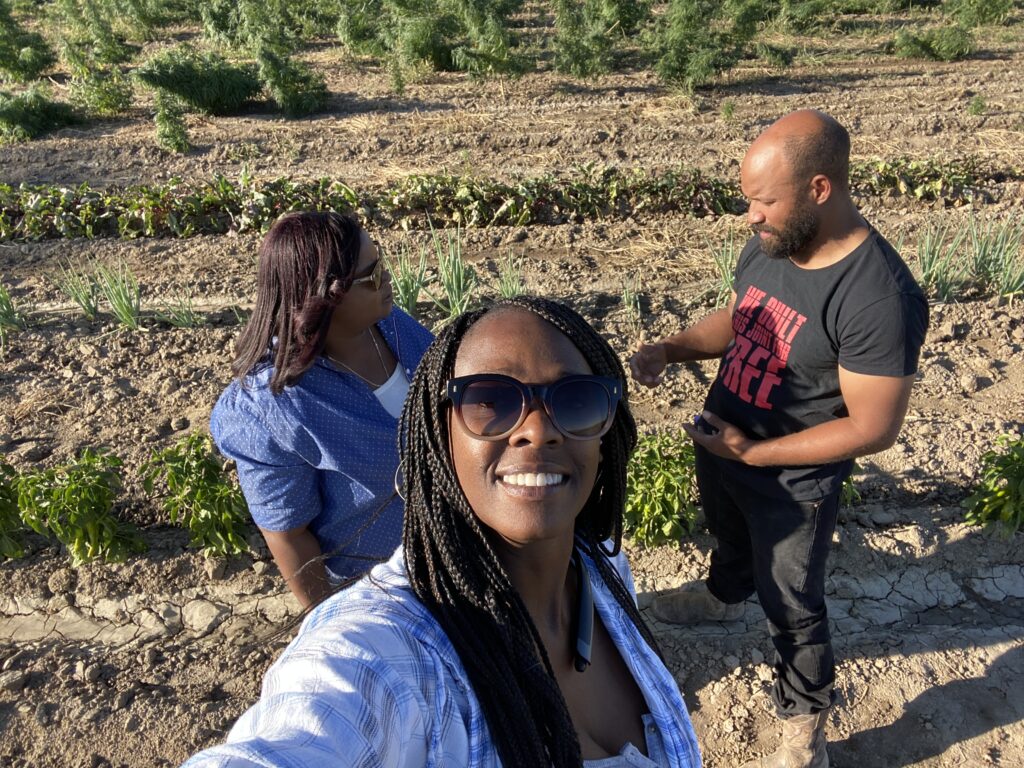
Photo courtesy of Deydra Steans
Deydra Steans’s depth of feeling for the land in the tri-county area of Guadalupe, Caldwell and Gonzales Counties grew organically out of the soil of her family history. The Johnson-McKean-Allen house’s place in that story is important, but so, too, are the Freedom Colonies near Kingsbury, where Steans grew up. These are small communities formed and farmed by freedmen and women in the years immediately after the Civil War, usually outside of more established towns, where land was less desirable and where white people tolerated Black folks buying land.
Steans’s grandmother, Lillie Ball, came from a large farming and homesteading family in the Zion Hill and Jake’s Colony Freedom Colonies. “I’m a product of sharecroppers and homesteaders, and they came from these little Freedom Colonies, some of which have been erased from history,” Steans says. In the case of nearby Harris Chapel, for example, Steans has been working to get official state historical recognition of a cemetery that is plainly visible, as she puts it, in the form of “really old graves, right on the road,” to un-erase her family’s and her community’s connection to the land. For at least thirty years, white landowners have locked the Harris family out of their family cemetery, the hallowed ground where Deydra remembers attending funerals as a child. “That’s why it’s so important that we’re putting these places on the map, and restoring their history,” she explains.
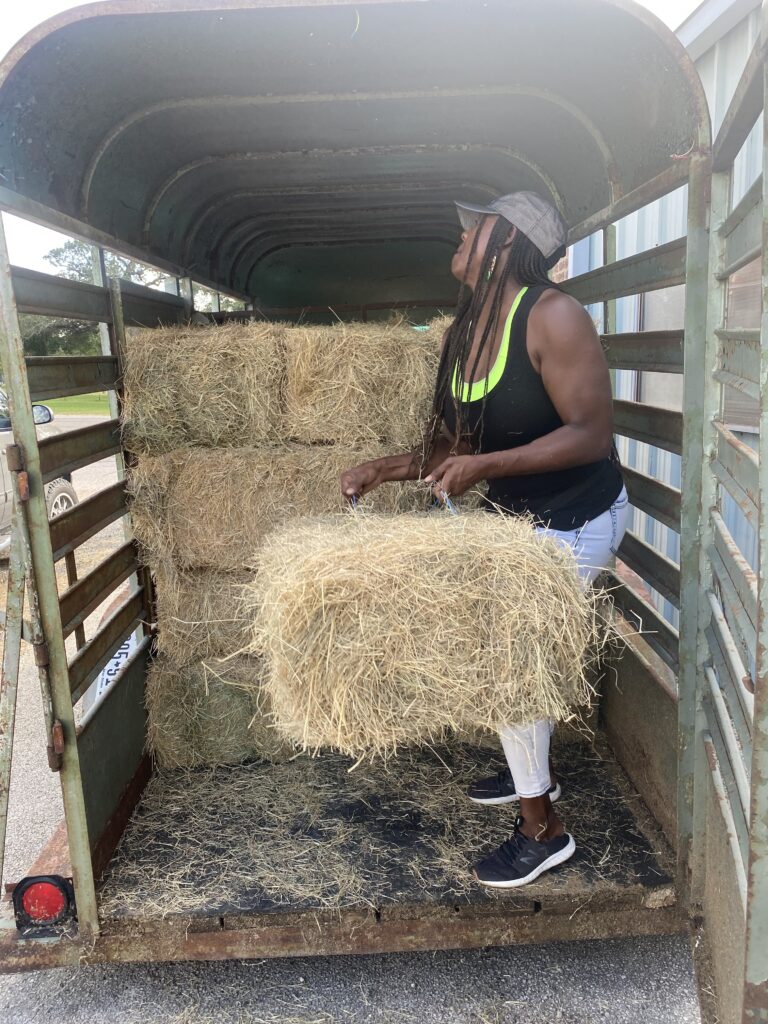
Photo courtesy of Deydra Steans
In fact, staking a claim to the history of the Texas Freedom Colonies is one way of fighting back against the structural racism that has fueled the theft of land from Black farmers and ranchers throughout the state. As Steans explains it, the historic discrimination by federal and state agencies, by tax authorities and by the courts engendered such a level of distrust among members of her community that their property has become an easy target for targeted land loss.
“Maybe 80-85% of the properties of producers I engage with are considered heirs property,” she says. “They’re tenant-in-common, with aunts, uncles, etc. They do not probate when people die. It’s a foreign process, because they didn’t even go to town, to the courthouse—are you kidding me?—to even know that process.” Decades of discrimination and mistreatment have not exactly drawn Black farmers and ranchers to the U.S. Department of Agriculture or Texas Agriculture Department offices.
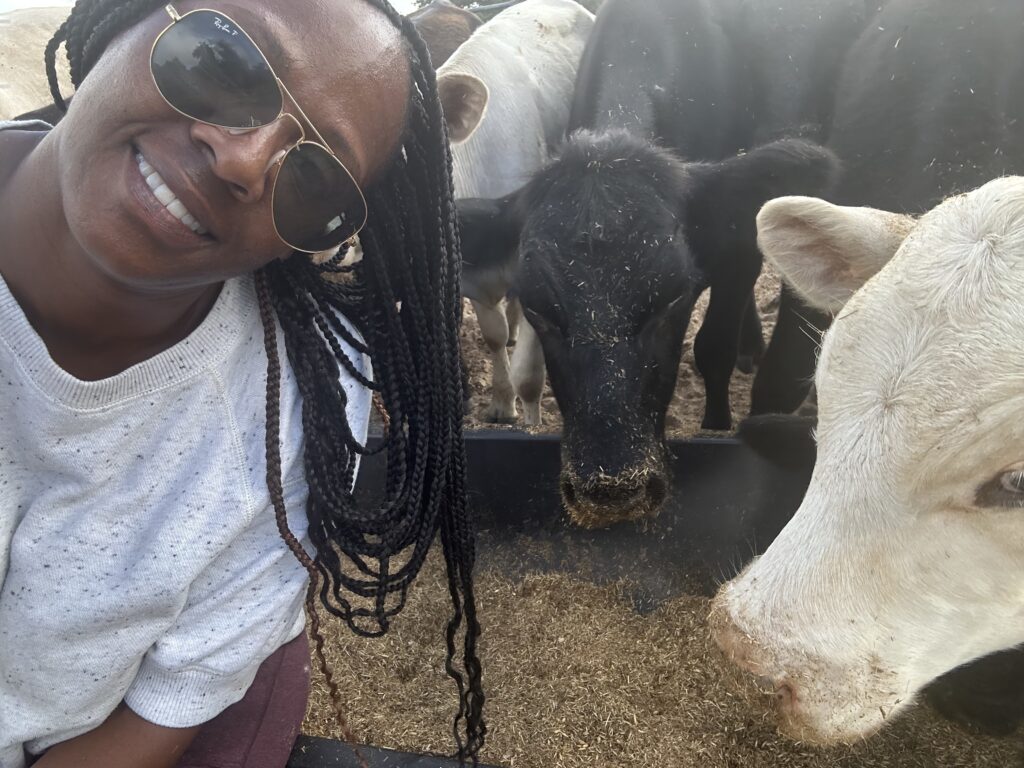
Photo courtesy of Deydra Steans
Similarly, many Black producers have lost their land due to being behind on their taxes in a system that seems rigged against them. For example, Texas tax appraisal districts have changed the rules so that producers with fewer than 10 acres can no longer receive a tax exemption, and if one loses one’s exemption, there’s a 5-year waiting period to get it back. “That’s a long time to be saddled with a tax burden you cannot afford,” Steans notes, and it makes ranches vulnerable to predatory land thieves looking to scoop up land for cheap.
Steans is now working with a family that owns 140 acres of land, but in order to get an agricultural tax exemption, they need to put livestock on the land. Unfortunately, they do not have the $30,000 it would take to build a boundary fence to keep the animals from straying onto neighboring ranches.
“It’s troubling,” Steans observes, “but I believe there’s a reason why I now know what I know, so let’s raise awareness about this issue.”
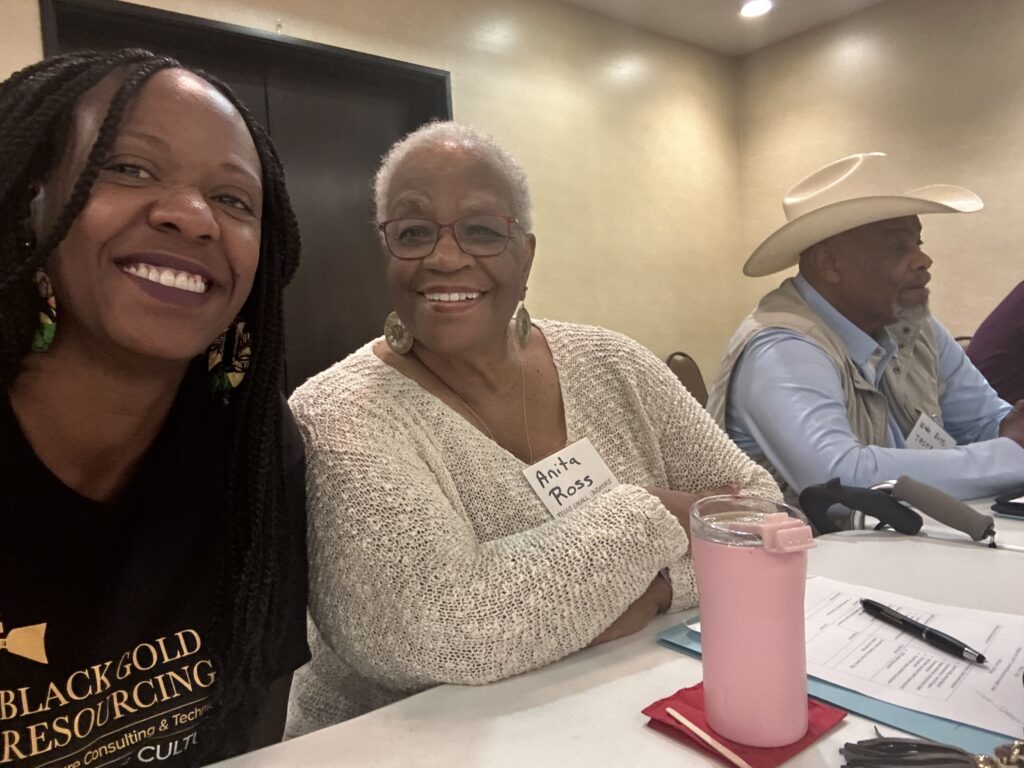
Photo courtesy of Deydra Steans
An educator by training, Steans has devoted her life to sustaining, as she puts it, “resilient communities” where “folks get up every day and do the things they need to do to keep their operations going.”
The agriculture industry has caused Black folks to feel like, ‘Hey, we don’t want anything to do with that. We want to move to the city and put all of this ugly history behind us…[but I want to] try and reestablish connections to our land, to these places where we’ve been isolated, or torn from, or traumatized. – Deydra Steans
Steans focuses much of her work with Black Gold Resourcing and the newly formed Conservancy for Agriculture and Renewable Energy on teaching that there’s value not just in holding onto the land, but there’s value in the work that people do and in the things that they cultivate. “I try to help people recognize the economic benefits of having these new opportunities, and of doing things differently and sustainably through regenerative agricultural methods.”
Not that these methods are new. Steans remembers that her grandfather, Garland Harris, farmed land that, thanks to the GI Bill, he bought from the McKean family in the 1940s and on which he practiced regenerative agriculture even though no one called it that at the time. He grazed his cattle with gaps in his fences, moving the cows to graze on different grasses, maize and other ruffage, effectively practicing rotational grazing without naming it that. As so often has happened, it was the most marginalized communities that used native instinct to fashion solutions that served both them and the land.
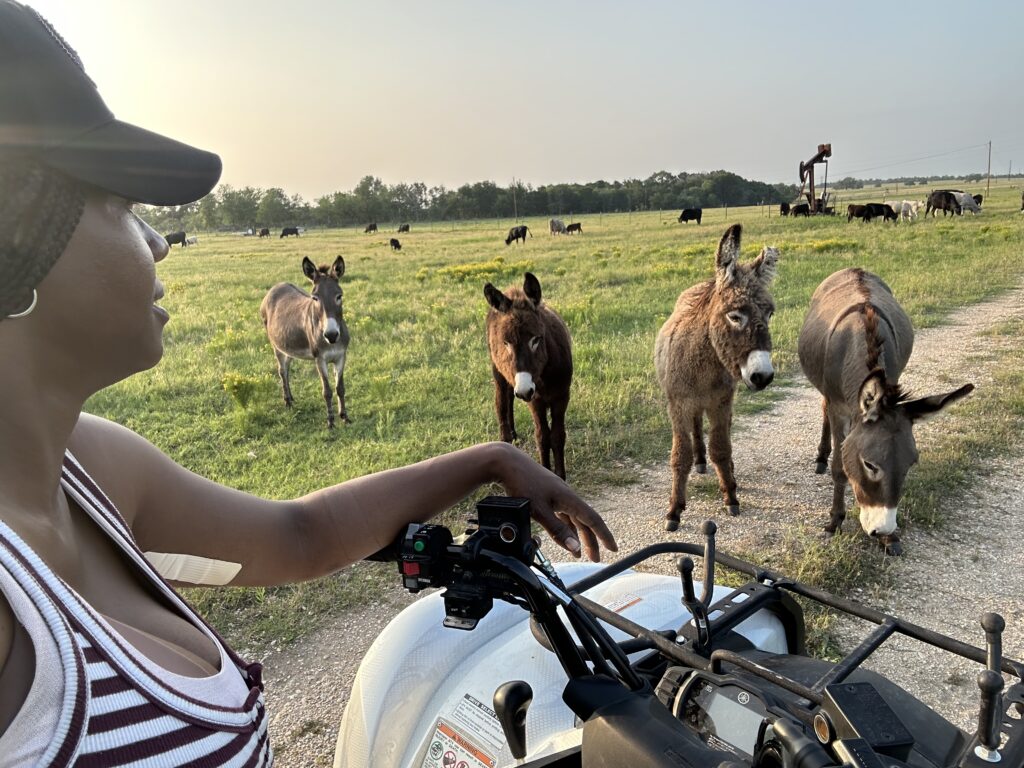
Photo courtesy of Deydra Steans
Today, Deydra’s 220-acre ranch is transitioning to become a regenerative agriculture demonstration site. She is finishing a 5-year conservation contract, planting native and improved grasses on land where she stopped using fertilizer seven years ago. “We can accomplish the same thing as fertilizer just by using cover crops,” she says. “I like to plant a mixed forage that consists of everything from Balanza clover, crimson clover, to tillage radish (because we’ve got tight, compacted soil thanks to fertilizer use). So that tillage radish goes down—really, really down into the soil. The livestock love it, the wildlife love it, and once it decomposes and leaves these holes in the ground, you get oxygen and hopefully rain, much, much deeper in the ground than before.”
By planting cover crops and rotating the cattle grazing, Steans cut her yearly hay bill in half. “We didn’t have to feed as much and we didn’t have to buy as much feed. We just finished a couple of new cross-fences, dividing the pasture into quadrants, each with water, and each with different forage. You let cattle into a particular paddock, let them graze it down to a certain level, leaving their waste, walking on it, and pressing it into the ground. I really want to see the cow hooves turning the manure back into soil! It is a more intense rotational grazing process,” she says, though not so different from what her grandfather did in the 1940s.
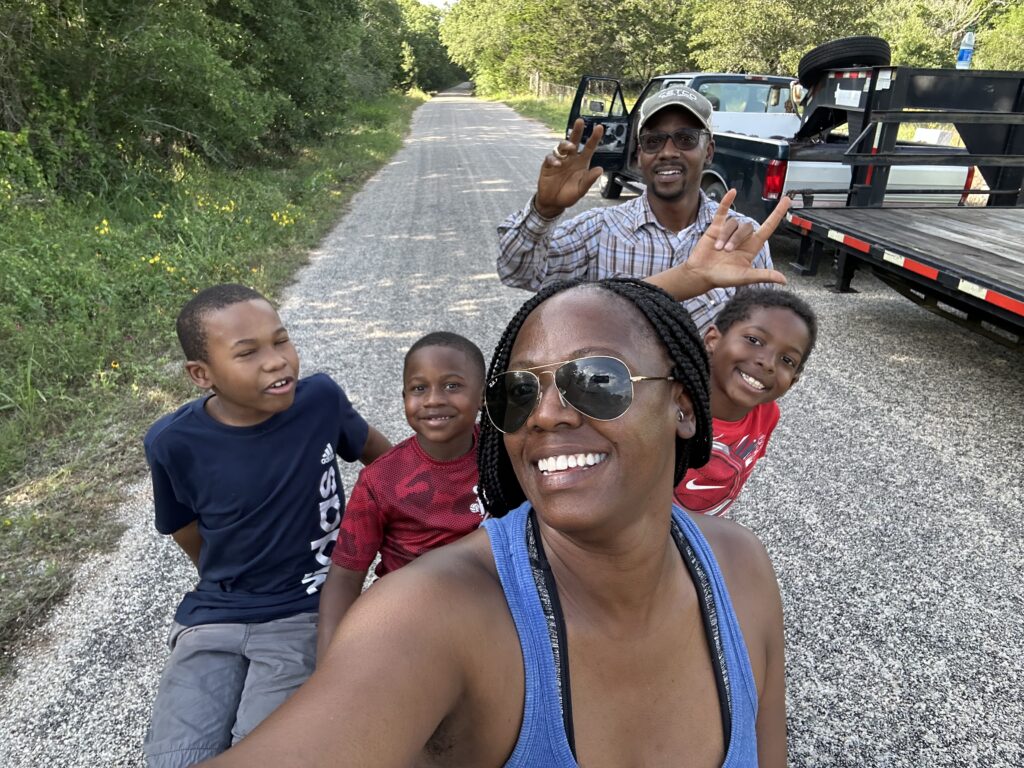
Photo courtesy of Deydra Steans
Steans runs workshops that teach these same methods and also focus on how to make farmland profitable, as a way to bring young people back to the land. “To me, the agriculture industry has caused Black folks to feel like, ‘Hey, we don’t want anything to do with that. We want to move to the city and put all of this ugly history behind us.” Consequently, there’s a lot of work to be done, Steans says, “to try and reestablish connections to our land, to these places where we’ve been isolated, or torn from, or traumatized.”
By helping her community to dismantle the structural obstacles to holding on to the land, and by teaching the economic benefits of regenerative agriculture, Steans leads a new generation of Texas farm advocates in demonstrating that Black farms and ranches matter—both in terms of righting historic wrongs and in charting a better path for all of us and the planet. Dating to that pre-Civil War period of enslavement on the Johnson plantation, through the era of the Freedom Colonies and, later, the age of segregation and sharecropping, Steans’s family and community have endured, and they’re not stopping now.
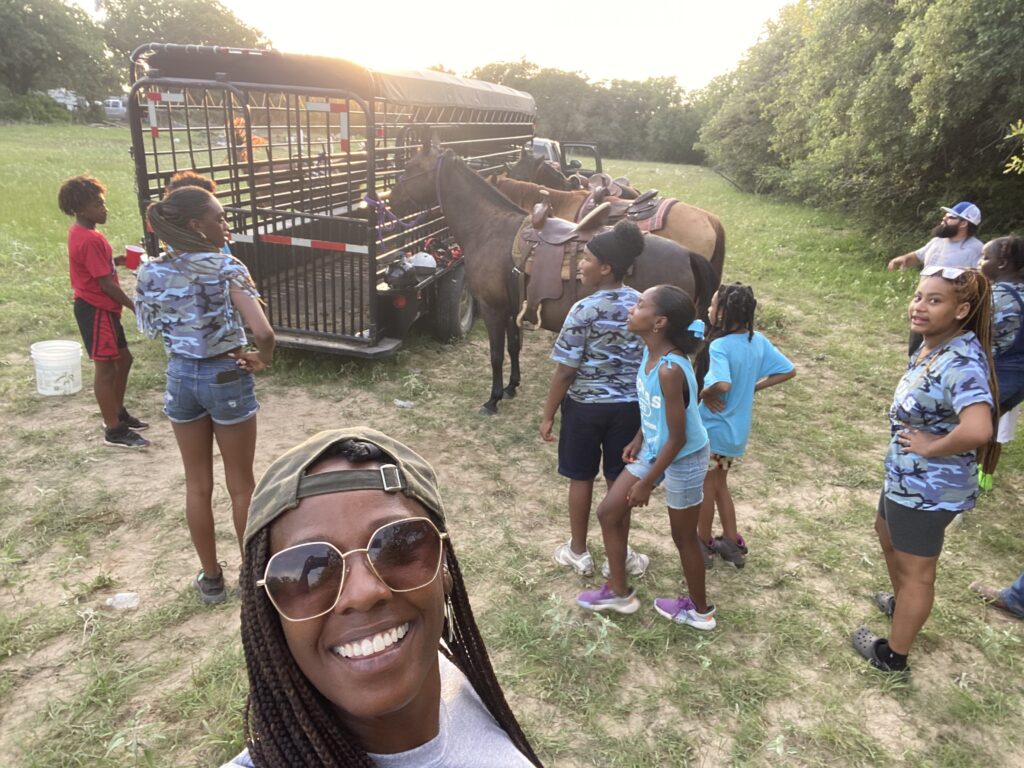
Photo courtesy of Deydra Steans
“We’ve always celebrated Juneteenth in my family because June 19, 1865 is when news of the Emancipation Proclamation reached Texas, and that meant real freedom. It’s great to see that it has become a national holiday, but here at home we celebrate it because it means we are going to be here, we’re going to keep producing and feeding the people in Texas.”
